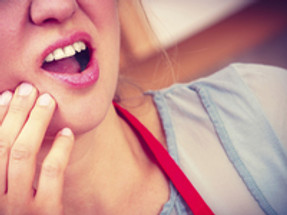Posted by Sierra Soleimani on Mar 31st 2016
Daytime Clenching: Do I Need a Mouthguard?
While bruxism is typically associated with sleeping, it can also happen during the day. Day time grinding is a form of bruxism that affects 10% of all night grinders. So there’s a chance that if you’re grinding during the night that you are also doing it during the day.
Just like nocturnal bruxism, day clenching is closely related to stress. In fact, studies have shown that 70% of bruxism cases are triggered by stress. Having an outlet for stress, such as doing yoga or seeing a therapist, lowers your chances of developing bruxism.
If left untreated, persistent grinding can lead to wearing down enamel, flattened teeth, sensitivity, receding gum line or cracked teeth. All of these are not simple and cheap fixes. Patients will need root canals, tooth extractions, crowns, implants, veneers and more.
So, how do you treat your day clenching? The same way you treat night clenching. A mouthguard. The only way to protect your teeth is to have a barrier between them to absorb the grinding forces.
With numerous options available on the market, particularly in the home sector custom fit guards, the choice ultimately boils down to three main factors: protection, comfort and cost. The ADA recommends choosing mouthguards which are:
- Durable and resistant to tears
- Fit properly and comfortably stay in your mouth
- Are easy to clean
Night time mouthguards are often bulky and too uncomfortable to wear during the day. If you plan on wearing one during the day, consider a ultra thin custom fit mouthguard. A mouthguard custom fitted to the user’s teeth is the most protective and comfortable option.
It’s never wise to self diagnose. If you suspect symptoms of bruxism, talk to your dentist. They will be able to clearly assess any wear on your teeth and diagnose your condition.



